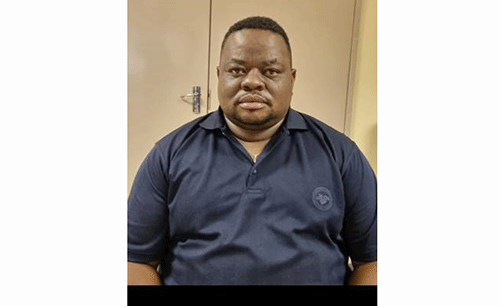Roger Deltry Kambatuku
Children love to run and play. It’s all part of being a child. As is taking part in more formalised sporting activities, this usually starts at school during physical education (PE) classes, or after school activities.
Irrespective of what their sporting or physical abilities are, giving children access to physical activities is imperative for any child’s overall development.
The sports ministry and education ministry, United Nations, and GIZ Sport for Development in Africa (S4DA) have joined forces to promote and make physical education an integral part of the school curriculum. This is embodied in the Integrated Physical Education and School Sports programme.
One vital aspect of having children engage in physical activities is to know they can do so safely and be coached, trained and supervised by trustworthy and certified adults who will look after the childrens’ physical and mental wellbeing.
Essentially, it comes down to safeguarding children in sports. All children have the right to participate, enjoy and develop themselves through sport in a safe and inclusive environment, free from all forms of abuse, violence, neglect and exploitation.
This sounds obvious and normal, but too often these rules are transgressed in some way. Children have the right to have their voices heard and listened to. They need to know who they can turn to when they have a concern about their participation in sport.
This is not always how Namibian adults behave. Wanting children to be seen and not heard and to always respect their elders, is highly important but it should never translate into any form of abuse.
Parents and the vast majority of care-givers would be appalled if they find out their children, or the youth under their guardianship, were being abused by a grown up.
We need to listen to them; we need to create a forum where children feel safe speaking out, so that in turn they know that they will be safe when engaged in physical activities. This is why the ministries are working together with our stakeholders to engage both coaches, trainers and the children through a programme called ‘Safeguarding children in Sports’.
Through a series of trainings and engagements across Namibia, physical education teachers, facilitators and other guardians are trained. The eight safeguards for working with children are explained in theory and practise.
These are: Developing your policy; procedures for responding to safeguarding concerns; advise and support; minimising risks to children; guidelines for behaviour; recruiting, training and communicating; working with partners; and monitoring and evaluation.
We owe this duty of care to them and that is why our ministry, together with the other stakeholders, will continue to train, teach and engage on this essential topic.
* Roger Deltry Kambatuku is a senior sports officer in the directorate of sport.



